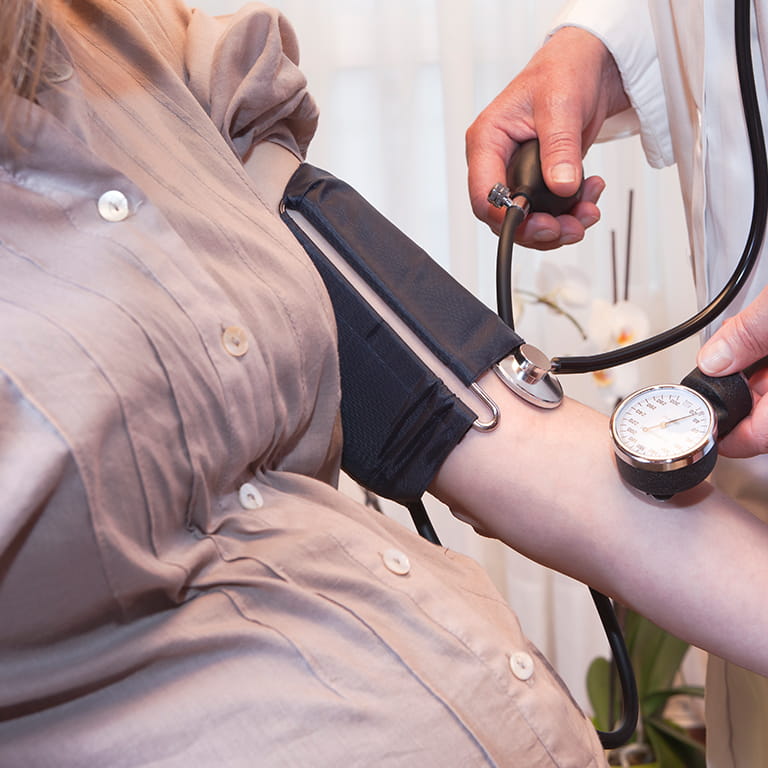
Researchers take next steps to understand COVID-19’s impact on people infected during pregnancy
 Hypertension in pregnancy is one of the leading causes of maternal morbidity and mortality, but it’s also one of the most preventable. The American College of Obstetricians and Gynecologists and other leading national organizations have strongly recommended that severely elevated blood pressures (greater than 160/110) be treated with timely (less than 60 minutes) and appropriate therapy to reduce maternal morbidity and mortality.
Hypertension in pregnancy is one of the leading causes of maternal morbidity and mortality, but it’s also one of the most preventable. The American College of Obstetricians and Gynecologists and other leading national organizations have strongly recommended that severely elevated blood pressures (greater than 160/110) be treated with timely (less than 60 minutes) and appropriate therapy to reduce maternal morbidity and mortality.
Patrick Schneider, MD, assistant professor, and Cynthia Shellhaas, MD, professor, in the Department of Obstetrics and Gynecology at the Ohio State Wexner Medical Center, are currently leading a pilot program to help ensure timely and appropriate therapy once severe range hypertension is detected, in hopes of ultimately changing statewide guidelines on the treatment of maternal hypertension.
The program began in April and is a collaborative project between the Ohio Department of Health, the Ohio State Wexner Medical Center, St. Rita’s Medical Center and Madison County Hospital and was modeled after other successful initiatives across the country. Similar programs have shown a 30-40% reduction in maternal morbidity rates.
When severe range hypertension is identified in a pregnant woman, whether at a routine prenatal visit or at triage or the emergency department in the hospital setting, the guidelines of the program indicated treatment within 60 minutes. Previous studies have shown that timely treatment and appropriate therapy greatly decrease the risk of an adverse event related to prolonged hypertension.
If the patient is discharged, the pilot program requires a follow-up appointment within 72 hours for patients who were sent home with a medication to hypertension, and an appointment within a week for patients discharged without a medication.
Another important component of the program is patient education — ensuring that the patient understands how to appropriately take any prescribed medication and knows what signs to look for that would indicate severe range hypertension.
Data is still being collected, but current measures assess the length of time to treatment once the severe range hypertension is identified, the intervention administered, how long it takes for the blood pressure to come down after the administration of medication and any other pregnancy- or delivery-related complications. The data collection form also measures discharge management, indicating education done at time of discharge and whether follow-up appointments were scheduled.
Drs. Schneider and Shellhaas are currently conducting the pilot, comparing it to baseline data from the three months prior to the start of the project, with hopes of translating it into a larger project statewide following the project’s completion in June 2020.